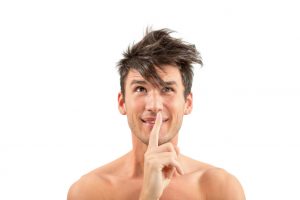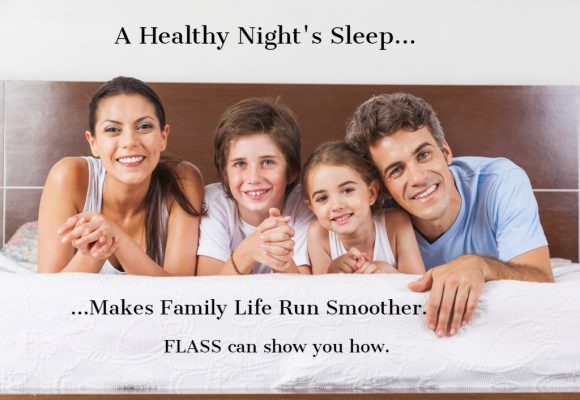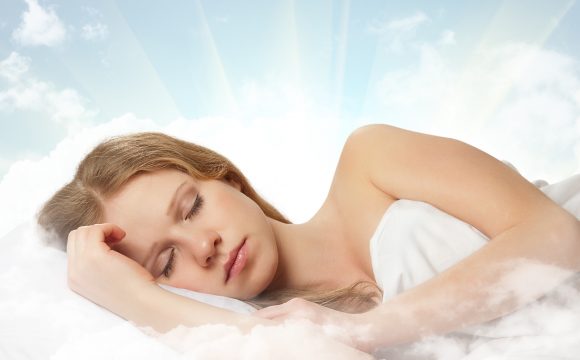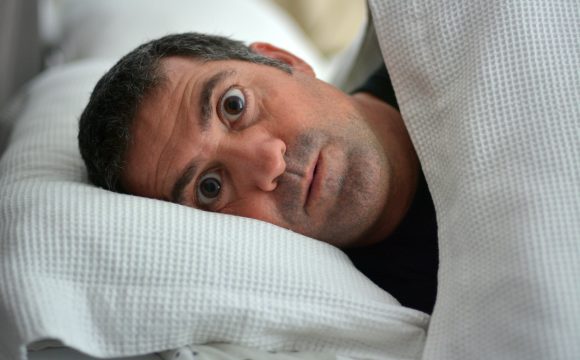Hypersomnia and unusual sleep disorders seldom make the media headlines of common but epidemic ones such as apnea. In keeping with our FLASS “Sleeptember” theme of Healthy Sleep, we bring you the scoop on some sleep disorders you might never have encountered previously. We hope you will review our previous blog on sleep. It emphasizes the plight of many of our fellow Floridians and respiratory patients who encountered restless, sleepless, high-anxiety days and nights as a result of hurricane season.
Sleeptember Bedheads Win the Most Magical Place On Earth from the ASAA

What’s Your Wake Up Look?
Likewise, we have already introduced you to another healthy sleep crusader, the originator of the term “Sleeptember:”the American Sleep Apnea Association. We encourage you to check out their excellent online resource for sleep information.
The hurricanes and disturbing events of September might have dampened the spirits of some social media users who intended to participate with their selfies in the great social media ASAA Sleep Awareness Campaign of Sleeptember. However, FLASS wants you to know it’s not too late to post “bed head” selfies into competition for four free Disney World Orlando Tickets. Here’s how the “Bedhead” social network competition works:
- Take a selfie of your face and head at the moment when you first wake up. (Yes, they want to see your hair.)
- Then post your cute, clever or crazy morning selfie on a social network. Now you have made a “bedhead selfie.”
- Tag it with #ASAAbedhead and #Sleeptember.
- “The selfie that grabs the most likes will win a prize: 4 (four) One-Day Park Hopper tickets for the Disneyworld theme park! Prize value is $648.00.” For more information, check out these links on social media:
Facebook: https://www.facebook.com/sleepapneaorg,
Twitter: https://twitter.com/sleeptember
LinkedIn: https://www.linkedin.com/groups/3289633 and Instagram: https://www.instagram.com/sleeptember/
Your Handy Research Resource for Hypersomnia and Sleep Science
FLASS and the ASSA are not the only health organizations that have chosen to note the dangers of undiagnosed sleep disorders. We join in our advocacy with such other prestigious protectors of healthy sleep. These include “World Association of Sleep Medicine,” which brings us “Sleep Medicine,” the official journal for the sleep medicine clinician.” As we at Florida Lung, Asthma and Sleep Specialists continue our Sleeptember sleep awareness campaign, we support the WASM mission as they strive to increase “worldwide awareness of the importance of sleep and the adverse consequences resulting from lack of sleep, due either to enforced lifestyle or to sleep disorders themselves.”
People Endured Hypersomnia from the Hurricanes of 2017
Here in Orlando, we have noticed many neighborhoods with branches and storm debris stacked for disposal, as the community cleans up and rejuvenates after Irma. We still see dark circles under many eyes, anxiety symptoms and some overt PTSD, as people struggle to rebuild their homes. They have pushed themselves hard to regain their businesses and re-establish their normal schedules. Even as far inland as is Orlando, it only recently has begun to see a few more rested eyes among patients and staff since the power was restored.

Even children can have sleep disorders. Lack of sleep can lead to serious sleep disorders and behavior problems.
The health issues of both normal and sleep disorder-afflicted people can be intensified when their sleep routines are disrupted. Many of us suffer from lack of healthy sleep when we are stressed by natural disasters and disturbing world events. Statistically, it doesn’t matter whether these events affect them, their family or their connection with humanity itself—the stress is still real. The stress and tension disrupts healthy sleep patterns and sleep disorders appear or intensify.
As our previous blog suggested, there has never been a better time to sound the alarm about our nationally epidemic sleep disorders. Thus, this week, in honor of your sleep education, let’s explore a term you might not know, but you will certainly understand. Everyone within reach of the hurricanes has experienced it to a certain degree: idiopathic hypersomnia.
The Meaning of Hypersomnia
Hypersomnia means simply means “excessive sleep.” Patients who have the condition will sleep at least 6 hours a night regularly, but then they have great trouble awakening. They are always tired, always sleepy. Some patients with this condition sleep 10 or more hours out of every 24. Alarm clocks do not arouse them and they fight against constant drowsiness when awake.
Causes of Hypersomnia
FLASS does not typically consider idiopathic hypersomnia as a disease in and of itself, but as a combination of symptoms with many causes. Excessive sleepiness may be due to a brain abnormality. Sometimes this means low levels of histamine in the brain. Likewise, low-grade infections could encourage this condition.
Experts at Stanford University Healthcare Center tell us, “Some patients with hypersomnia may experience other psychiatric conditions such as anxiety, depression or psychosis.”
Risks of Hypersomnia
Hypersomnia may be complicated by three main tendencies.
- An irregular sleep schedule and unnatural exposure to light,
- Medication taken at the inappropriate time or in inappropriate amounts.
- True sleep disorders like sleep apnea.
Now that we have a vocabulary word for a sizeable collection of symptoms, let’s check out three unusual stars in the galaxy of sleep disorders, all of which cause hypersomnia.
1. The Sleeping Beauty Syndrome and Hypersomnia, aka the Kleine-Levin Syndrome (KLS)

KLS Sleep Disorder (Sleeping Beauty Syndrome) forces you to sleep far beyond the normal amount hours. FLASS advises you to see your doctor.
Fairytale romances often include a heroine who sleeps under a magic spell. With an existence more like a nightmare than a fairytale, there are genuine victims of Kleine-Levin Syndrome (KLS). More like a nightmare than a fairytale.
Victims of hypersomnia are real-life sleepers who might sleep 23 hours a day for three sequential weeks. Typically KLS hits young men about 15 years old.
Other clues of a KLS diagnosis are excessive and unusual behavior. Perhaps such a patient also will binge eat, manifest apathy and indulge erratically in childlike behaviors.
The disorder often persists for 6 months to a year. The patient may have normal sleep before and after fighting the condition. Many patients find help in a mood stabilizing medication.
2. A Primer for Sleep Paralysis Patients
For a second rare sleep disorder, let’s investigate a normal sleep cycle. As we break down the steps below, we can see what goes wrong to cause the unusual disorder in which a snoozing person awakens frozen with paralysis and terrified.
A. When you sleep, you cycle between stages of rapid eye movement (REM) and non-rapid eye movement (NREM).
B. During REM sleep, sleep technicians and scientists see that your brain activity increases significantly. (This feature is very similar to your brain activity while you are awake.)
C. You know what this does. This is “the stuff that dreams are made of,” as Shakespeare said. REM sleep causes dreams.
D. To prevent your body from actively performing in those dreams, you enter a state of paralysis while in REM.
E. This basically turns off your voluntary muscles.
F. Here’s where things get terrifying: some people wake during REM sleep. And while their body is still paralyzed.You should not wake up at this point in a normal cycle.
G. They are aware of their surroundings, but they cannot move or speak. This interruption of the normal sleep cycle is extremely terrifying for the sleeper.
3. The Complications of Sleep Paralysis
Complications of sleep paralysis can include visual and auditory hallucinations, often of shadowy presences in the room. Fear, panic and shortness of breath can ensue. Perhaps this sleep disorder explains some of our multi-cultural fears such as the incubus, the shadow man, a legion of boogeymen and shadowy aliens in our bedrooms.
Strangely enough sleep paralysis is a fairly common sleep disorder, although you seldom hear it mentioned. Stanford University Healthcare experts state, “It’s estimated that approximately 50% of people will experience at least one episode of sleep paralysis in their lifetime. But only about 4% of people have had more than 5 episodes.” By the way, despite the scariness of sleep paralysis, you regain control of your arms and legs in only minutes or moments. Going back to sleep after the horrifying disturbance might be a greater challenge.
4. Exploding Head Syndrome (EHS)
Although the name of this sleep problem might sound like the beginning of a zombie rock-band movie, EHS is a true sleep and very real sleep disorder. Shortly after falling asleep, victims of Exploding Head Syndrome have hypnagogic auditory hallucinations. This means they hear noises that do not exist. They might hear explosions, voices shouting, gunshots or the shattering clash of cymbals. They might even see “light” strobing at their eyes.

Although it is part of normal sleep, conscious sleep Paralysis can be terrifying. Tell your doctor about it.
Such patients awake full of panic from the noise, but not in pain. The violence of the sound that awakened them ignites their fear. The explosive sound actually exists only in their heads.
Surprisingly, the Exploding Head Syndrome does no harm beyond the emotional shake-up and anxiety. However, when the phenomenon escalates into a persistent condition, fear of going to sleep intensifies. Then the sufferer can develop a much more serious sleep disorder, sleep onset insomnia.
The “Must Have” Take-Aways From Hypersomnia and 3 Unusual Sleep Disorders
Although the above sleep disorders are unusual, we have acquainted you with them to make you aware of your of the value of good sleep habits and the importance of good sleep to your general health. If you suspect you have sleeping difficulties or someone in your family exhibits such symptoms, do not hesitate to contact your physician.
At FLASS, we can treat many of the problems that might be preventing you from sweet dreams and regenerative sleep in our 4 sleep testing facilities. Although we hope you are becoming more aware of sleep disorders, please remember these blog articles are informational, not diagnostic. If you fear you might have a sleeping disorder, please see your doctor right away.
Once again we thank you for reading our FLASS blogs. Next week for our fourth part of the “Sleeptember,” theme, we will bring you updates on the common disorder, sleep apnea. Plus, watch for the scoop on three more fascinating disorders. In the meantime, if your stress creates a hurricane in your mind before or during sleep, FLASS will help you navigate to a safe haven in the eye of the storm.

